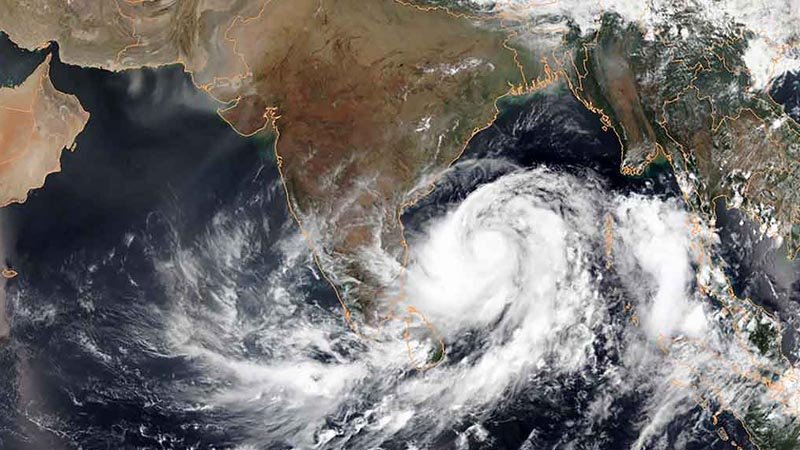Gearing up to combat Fani

The southwestern part of Bangladesh is about to go through another nightmare as the area is bracing for severe cyclonic storm Fani to landfall today. Khulna and most of the southwestern districts of Bangladesh are expected to witness the dire consequences of Fani which might arrive with wind speed from 150-180km per hour while crossing Bangladesh. However, Bangladesh is preparing shelters and making post-disaster preparation to combat the cyclonic storm. Meanwhile, in the coastal districts, authorities are preparing for the cyclone.
Also the government has already taken steps such as cancelling weekends and holidays for all government officers and staff in coastal districts. As emergency aid, an adequette amount of rice, dry food, and house building materials have been stored up. As preparation, medical teams and nine control rooms in most of the vulnerable districts t have been opened. These all preparations and precautions are inevitable indeed but there is always the need for further plans and actions to efficiently combat an "extremely severe cyclonic" storm like Fani.
Intense natural disaster has been a part of our lives since millennia. Constant natural calamities in the country have been observed over the years and with climate change across the globe, the natural disasters seem to be getting more powerful. In contrast, Dexterity that has been executed by Bangladesh in disaster preparedness over last few years is commendable indeed. Bangladesh has advanced quite a lot in disaster preparedness and the country is considered as a global example of disaster preparedness.
The country has earned reputation and international recognition for efficient management of disasters. We feel proud to state that Bangladesh could be role model for others in managing disaster situations of varied nature. However, the disaster management system of the country needs further development. The paradigm of disaster management has shifted and our knowledge about it has also changed over time but still we need to do a lot more to take our disaster preparedness to a higher level.
For this purpose, more focused initiatives are needed for increasing the capacity of the concerned government agencies. Education and training programmes in related areas especially for officials working on disaster management are required. This will help in developing professionalism of the disaster management system. There is a new challenge in the wake of the climate change. Bangladesh has resource constraints both human and material. New technologies are emerging to combat disaster situation and minimise its negative impacts on lives, assets and properties and above all livelihood of the disaster affected people.
As the nature of disasters is changing, we need to find innovative solutions to effectively tackle calamities. It is not always possible to predict a disaster but if we take adequate preparation we can certainly minimize loss and damage caused by a disaster. It is said that Bangladesh is well placed in disaster preparedness in terms of early warning system, early communication, last-mile connectivity, fast response system and multipurpose cyclone shelters.
But what we need to do now is to invest more in creating awareness among general people about disaster preparedness. We should effectively utilize local knowledge about disaster management and disseminate it to a wider audience. It is high time to constantly develop our disaster management capacity to cope with the changing nature of disasters. As disaster management is a holistic process, all stakeholders and authorities concerned should provide concerted efforts to tackle catastrophes.
As primary initiatives in order to combat Fani, the government should take necessary steps with a view to raising mass awareness about natural calamities and disseminate necessary knowledge and information among the people living in the disaster-prone areas to bring down losses of lives and properties. We can always recover the consequence from the disaster faster if we are prepared for that at all times. And we have successfully attempted and demonstrated it for several times in the recent past.
In this regard, authorities concerned should give more focus on community level preparedness rather than response and recovery and demand increased allocation for preparedness. Also the government should prioritize the districts vulnerable to climate change and poverty and establish a district level funding mechanism focusing capacity building of women, young people and children, and promote green jobs at rural and semi-urban areas which will not only contribute to national economic growth but will also decrease vulnerability posed by disaster induced displacement and migration.
The writer is Editorial Assistant Bangladesh Post.



